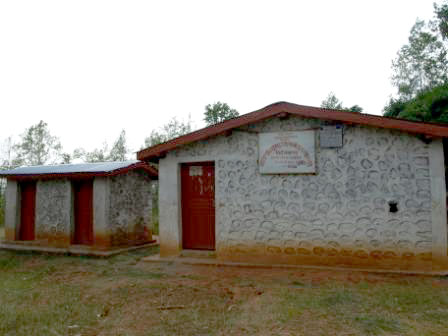Nepal stands atop in South Asia in terms of women coming for health care delivery; No untimely death of woman from labour pain: PM Deuba

File Photo
Kathmandu / July 24: Nepal has become the topmost country in the entire South Asia region in terms of the number of expectant mothers choosing delivery in health facilities.
Nepal, which has been member to the Global White Ribbon Alliance for Safe Motherhood since 2009, made a significant stride in the mother and child care campaign since the government has accorded high priority to these programmes and have made sure that as many as pregnant women are benefited with modern delivery facilities and available maternity services.
According to Secretary at the Ministry of Health, Prof Dr Kiran Regmi, around 60 per cent pregnant women have been recorded to have availed safe delivery and maternity services from the birthing centres.
The Health noted that the percentage is the highest benchmark among the other countries in the South Asia Region.
The Ministry has been providing free services relating to reproductive health care, including uterine prolapse.
The maternal mortality rate in Nepal has fallen to 134 per 100,000 pregnant women and new mothers while the mortality rate stands at 21 per 1,000 live births.
The Minister is currently implementing an ambitious programme to reduce the maternity mortality to 90 and infant mortality rate to nil.
Meanwhile, world-wide discussions have been started about the initiatives taken by Nepal to reduce child and maternal mortality rates.
A four-day global meeting on Safe Motherhood organised by Safe Motherhood Network Federation of Nepal ( SMFN) has begun here from today.
Representatives of 16 countries including South Asia are participating in the meeting.
Representatives of the countries associated with Global White Ribbon Alliance for Save Motherhood, an international organisation established for safe motherhood, would review the programmes related to safe motherhood run in their respective countries in the meeting.
No untimely death of woman from labour pain: PM Deuba
Inaugurating the meeting, Prime Minister Sher Bahadur Deuba said that the constitution has guaranteed quality health services as the fundamental rights.
He expressed the belief that it would bring remarkable improvement in access of general people to healthcare services.
Saying programmes launched by the government are focused to achieve sustainable development goals related to health, the Prime Minister said that the Health Ministry had primarily paid attention to achieve the goals related to safe motherhood.
The Prime Minister added, “The rural women in Nepal have still a little access to safe motherhood and this problem must be addressed collectively to ensure that onwards the country would see no maternal deaths and child mortality.”
Giving his views about the political developments in the country, he said the two rounds of local-level elections concluded recently proved a milestone in the empowerment of women, he said he was hopeful that such empowerment would help improve women’s economic, social and political status at the grass root level with guaranteeing safe motherhood.
He was of the view of connecting the save motherhood programmes to the safe health system while carrying out restructuring of health sector at the local-level.
Health Ministry Secretary Prof Regmi said the Ministry was focused on achieving the sustainable development goals relating to safe motherhood.
SMNF President Dr Arzu Rana Deuba said though Nepal of late witnessed a remarkable progress in the area of safe motherhood, the status of rural women had not much changed. On the occasion, she took the opportunity to demand the government go with the bill relating to safe motherhood.
SMNF Vice-President Bishnu Raj Nepal said participating countries and WHO representatives in the meeting would share work experiences in related to safe motherhood, preparing a future work strategy.
The SMNF that was established in 1996 has worked for planning and implementing awareness and advocacy programmes in related to safe motherhood and proper caring of new born babies at the grass root level, as the organisation says. RSS
